
The Nomad is a series of stories, fascinations, encounters, observations, experiences, joy of the moments by me, Ulrike Reinhard – all around my travels. Stay tuned!
Ulrike Reinhard is The Nomad 🙂
Maltahöhe in Southern Namibia has German roots. It was founded in 1899 by Henning von Burgsdorff, a former officer in the German Schutztruppe, the military force of the Imperial German occupation. Burgsdorff named the place after his wife Malta. After the Germans left Namibia in 1915, the settlement became a small hub for tourism, serving as gateway to popular desert destinations like the Sossusvlei, Solitaire and Sesriem.
Maltahöhe has been in steady decline for decades. Today the village is abandoned. Many businesspeople have left. Alcohol abuse is common and unemployment is skyrocketing. The former town – it was downgraded to a village in 2000 – used to be a centre for karakul sheep farming, but this branch of agriculture has likewise been shrinking.
Yet, there is hope and first investments (700.000 Euros so far) have been made to revive Maltahöhe. Wolwedans, a benchmark in Namibia’s tourism industry, and its Foundation have taken the village under their wings and kicked off an ambitious transformation project called Rural Revive. It is a 360 degree approach – it’s closing the loop of supply and demand when you look at it from a business perspective AND from an ecological perspective nothing is wasted, everything becomes a resource to create something else. Rural Revive is the brainchild of Stephan Brückner, Managing Director of Wolwedans, he sees the re-establishment of Maltehöhe as a tourism hub as part of his corporate social responsibility. In 2021 construction started on the Maltahöhe campus and now the first products and services are ready to market.
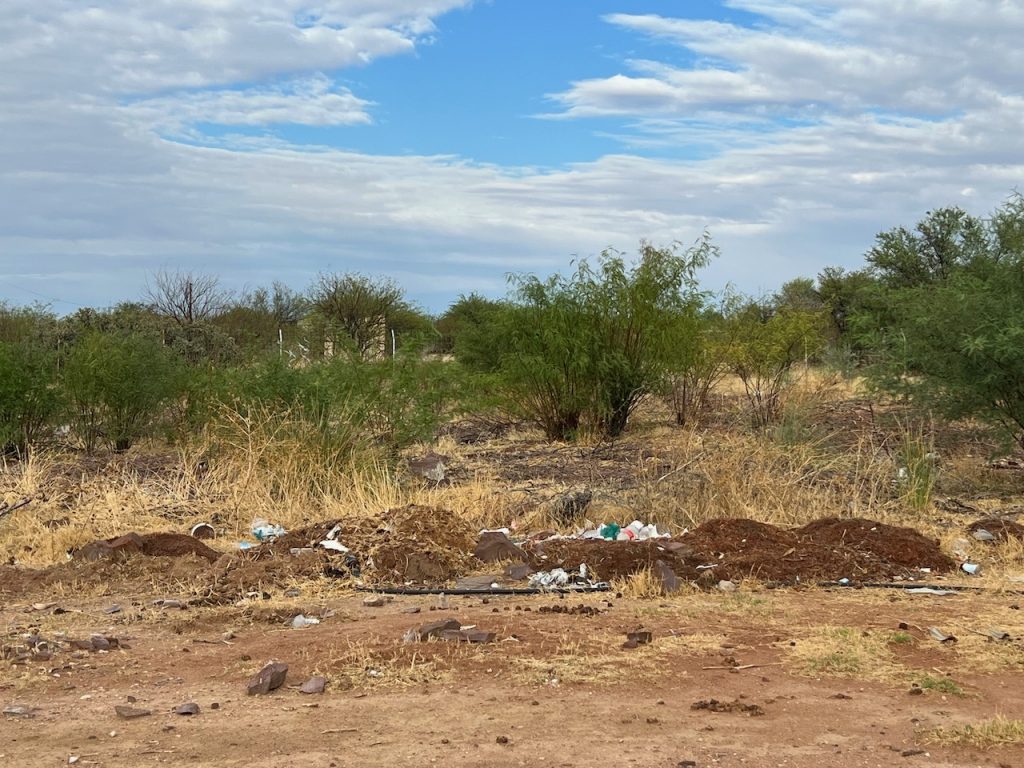
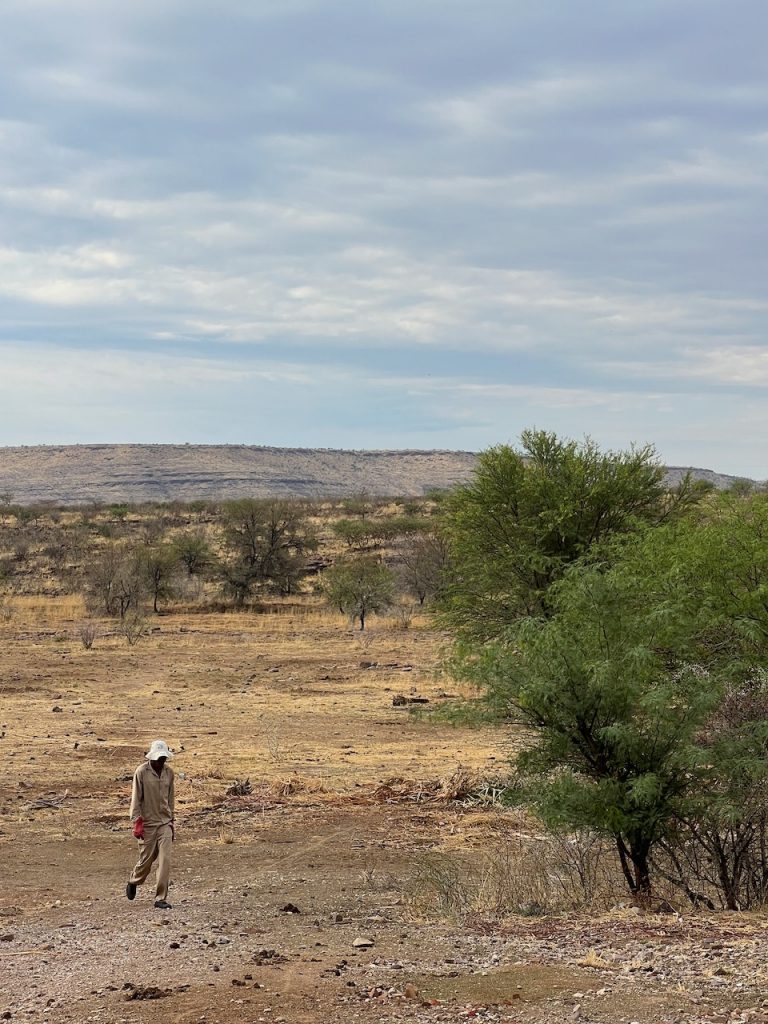
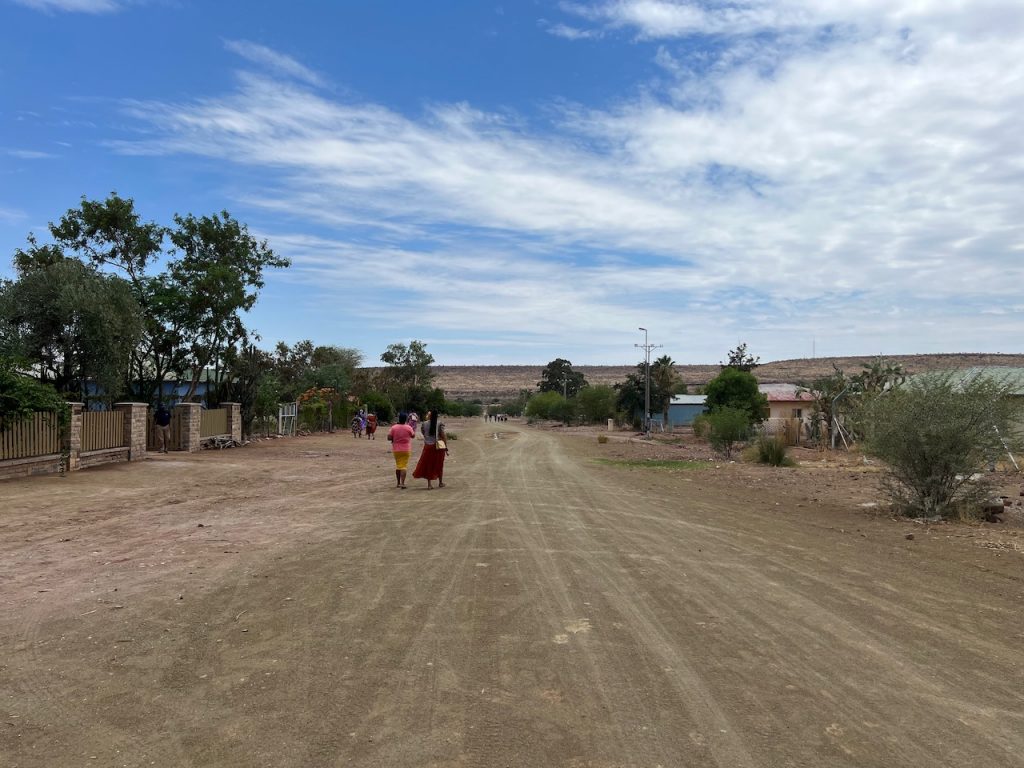
Impressions from Maltahöhe
The Economic Loop
The potential market in the desert covers max. 1400 tourist beds (= 2800 people) plus 1200-1500 service personnel. These people need to be transported, fed and their sheets need to be cleaned. This is where Rural Revive spuds in – with a laundry, a green house (horticulture), a barn and the Desert Runner.
The laundry with 15 big-scale washing machines is solar powered and its wastewater will be recyclied. It will create a few jobs, mainly for the local women. The plan is that after a test period of six months with three hotels which are already commited to use this service, that other hotels will join. In six months the Desert Runner is scheduled to run. It is a special designed ‘bus’ for the delivery and collection of laundry, fresh products, waste and people – so far there is no ‘public transport’ beyond Maltahöhe down into the desert. This ‘bus’ is key to maximise participation and make the project work. It is connecting the dots.
One green house and a kitchen garden are already producing enough organic vegetables to feed the staff. More green houses will be built this year to supply both the local market and the tourism industry in the desert with fresh organic veggies. A small barn for direct sales is on the campus, a bigger building for a real market is bought two blocks down the road. In order to organize the supply and demand for all the services an app is conceptualized which includes a cashless payment function.
The plan is – once these services run smoothly – that Wolwedans’ competitors will join. They will do so if the Rural Revive services reduce their costs and show an affect on their bottom line. It is Stephan’s idea to run all products and servives under the Rural Revive umbrella as a non-profit service to keep costs to a minimum.
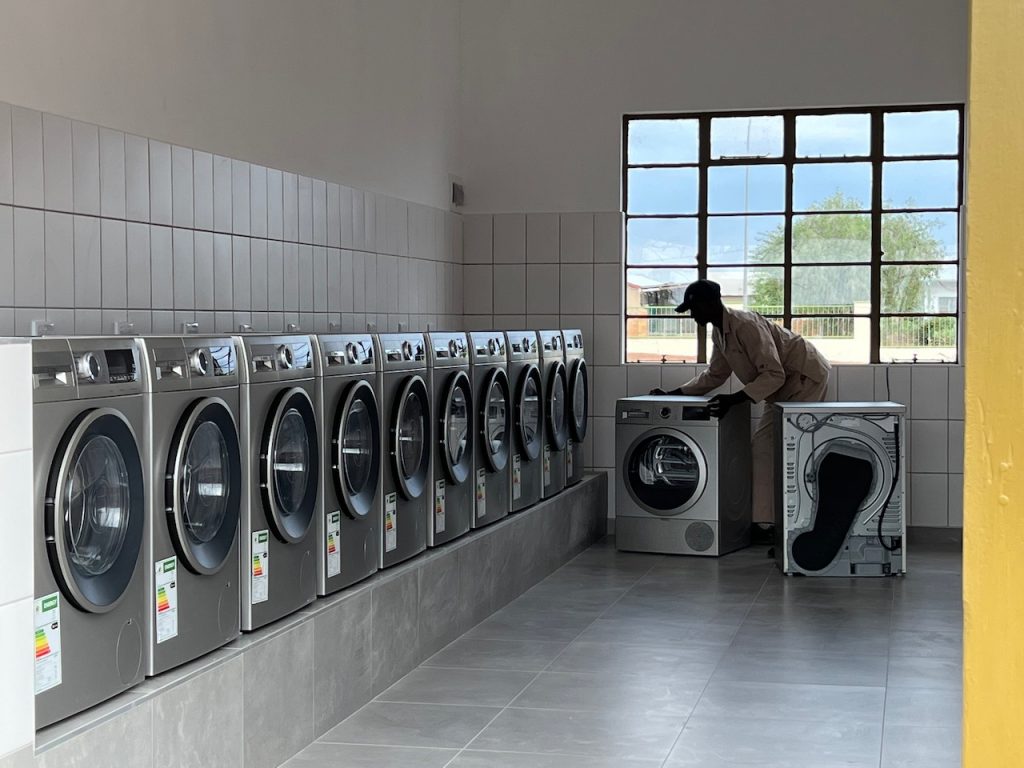
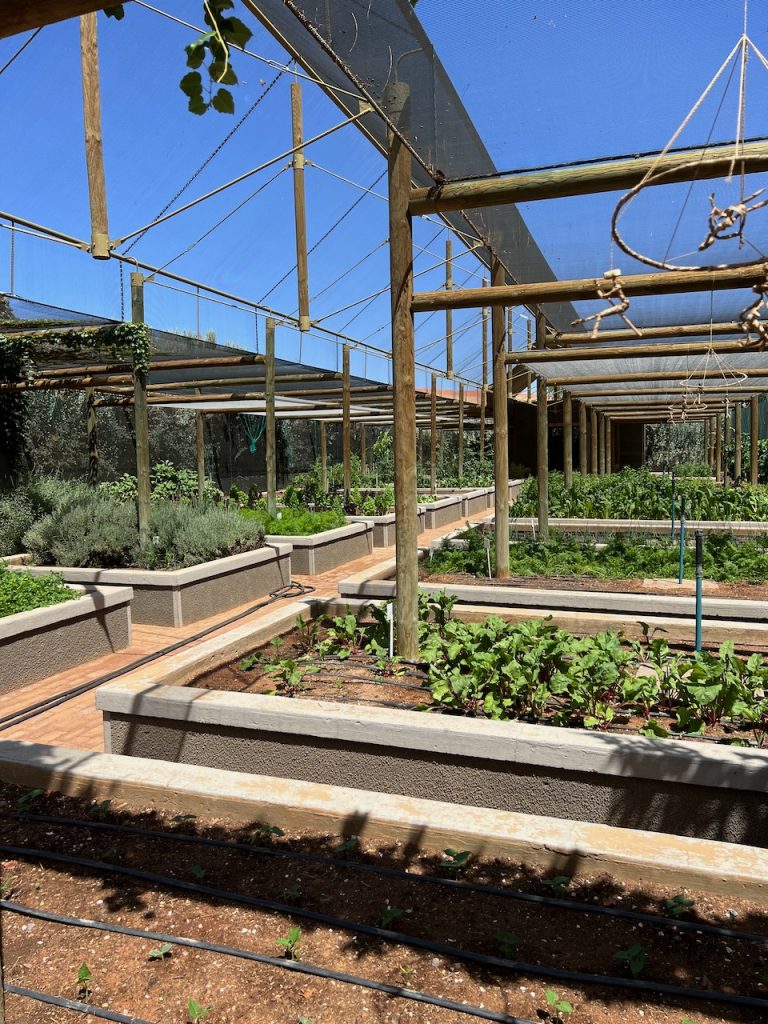
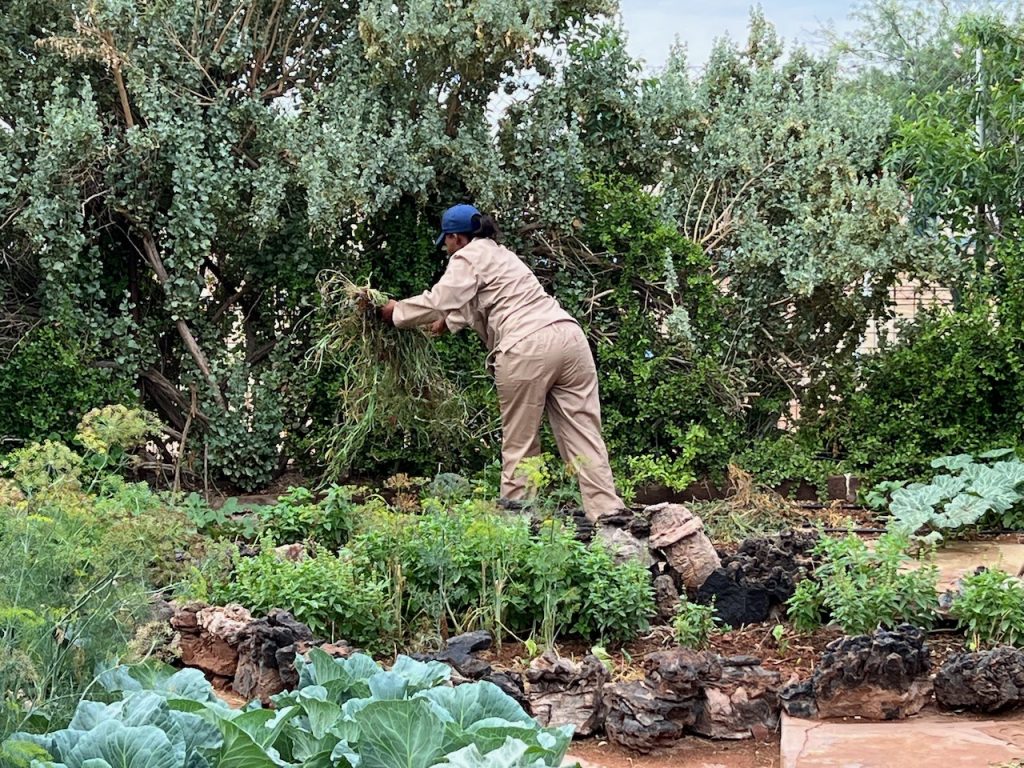
The laundry, green house and parts of the kitchen garden at the Rural Revive Campus at Maltahöhe
The Ecological Loop
Besides the economic importance of the endevour, ecology is equally important in this highly sensitive environment. Therefore water and waste management as well as short supply distances are crucial. Reduce. Recycle. Reuse. That’s the name of the game.
To move the laundry service out of the desert up to Maltahöhe will reduce significantly the water usage in the desert. The water from the washing machines is running through a wastewater recycling facility and is re-used to irrigate the plants in the green house. The facility runs just like the washing machines on solar.
To produce the food locally will tremendously reduce the miles the food is travelling and improve its quality because it will ripen where it is sold and not in the back of some big truck. Currently most of the food is coming in from South Africa, it is delivered to WIndhoek and from there it’s distributed.
A waste management system is already in practice at Wolwedans – the plan is to expand this to Maltahöhe and the other tourism businesses. The goal is an integrated and collective approach to reduce landfill and manage waste as a resource with tangible value: ‘Trash-to-Treasure’ is the slogan and at Wolwedans parts of the waste already brings money in return. To enhance these activities to a bigger scale plans are in place for 2024 to rebuild an existing old factory at Maltahöhe. This would create a significant number of jobs.
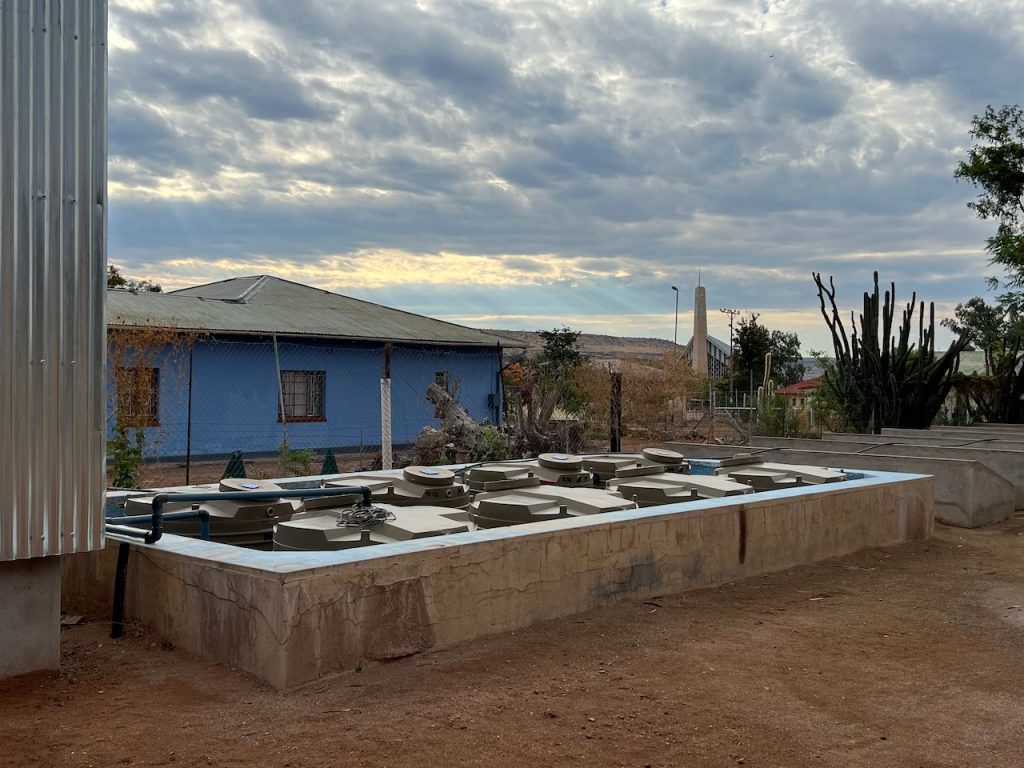
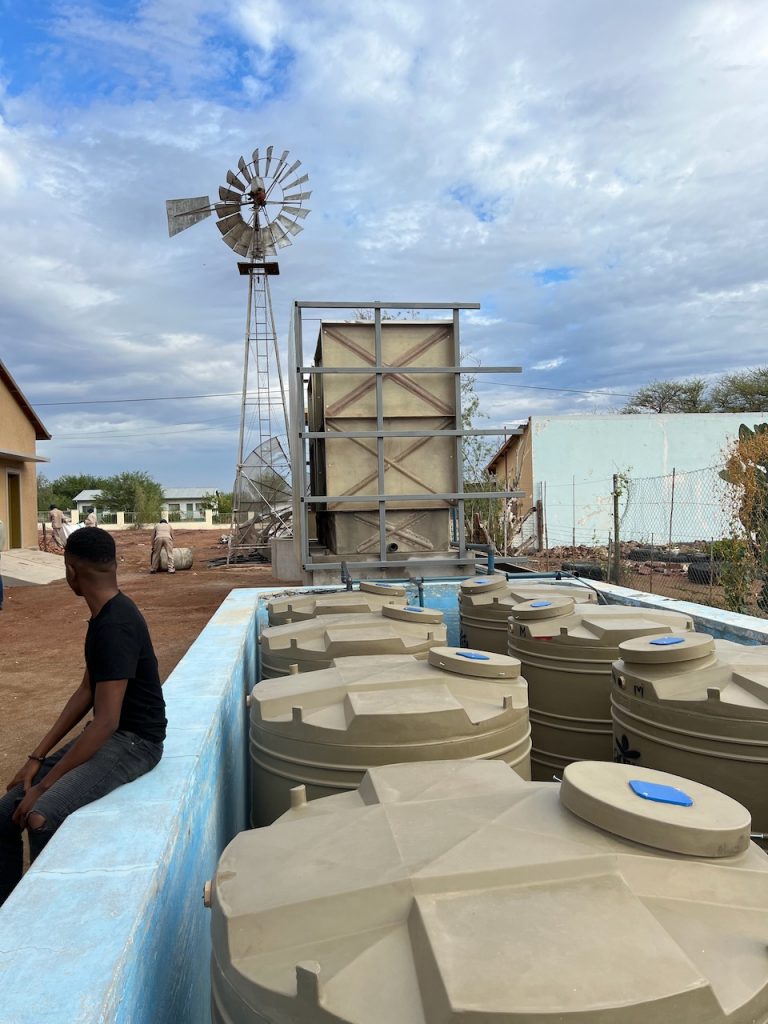
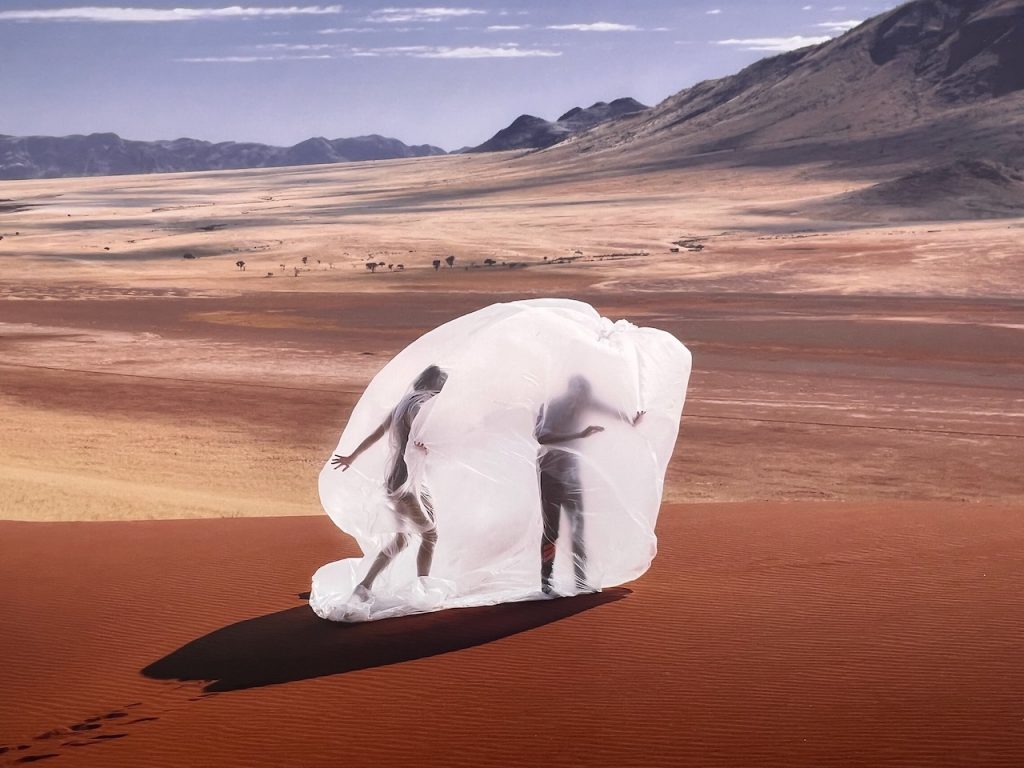
Water recycling facility and awareness campaign for waste in the desert
Culture and Capacity Building
Rural Revive can only succeed, when the people buy into these ideas and actively participate. This means ideas and people need to sync. For this capacity building is a top priority and the ‘corporate’ and ‘village’ culture need to adjust. These processes have to run parallel to the Rural Revive activities.
The Desert Academy, a living hands-on class room, run by the Wolwedans Foundation in partnership with NICE (Namibia Institute of Culninary Education) for vocational training qualifications in hospitality & tourism, is enhanced to horticulture. The first 18 students have started their training (up to two years, depending on the level of the qualification) at Wolwedans and Maltahöhe. For the youth of Maltahöhe and for the local farmers this program will nurture a culture of self-sufficiency, improve local food security, and create entrepreneurial opportunities for producers. It is free of costs for the participants.
Tools and workshops are put in place to create a culture which values these efforts – every trainee and employee is challenged to contribute. Every morning at 7am, all employees practice ‘circle time’ – one employee takes the lead and guides through the event. It is meant to bring everyone together and to start the day as a team. Someone is reading a theme out of their company compass and necessary announcements are made. At the end one employee is suggesting any kind of group game – and then the working day starts.
Workshops for/with the employees to create a better and a more common understanding of what Rural Revive stands for are planned throughout 2023. On January 21, 2002, Rural Revive opened its doors to the public an invited all the villagers and officials to celebrate what has been achieved so far. The resonance was very positive and many people followed the invitation. It is important to have their support. They need to understand that this is something for THEM.
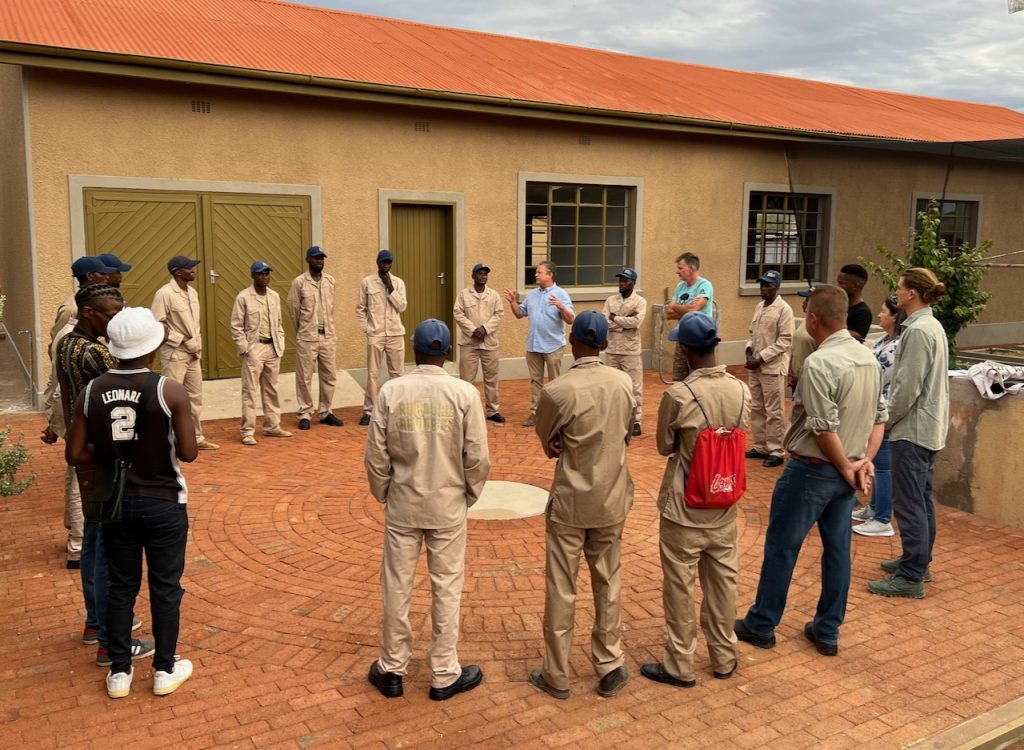
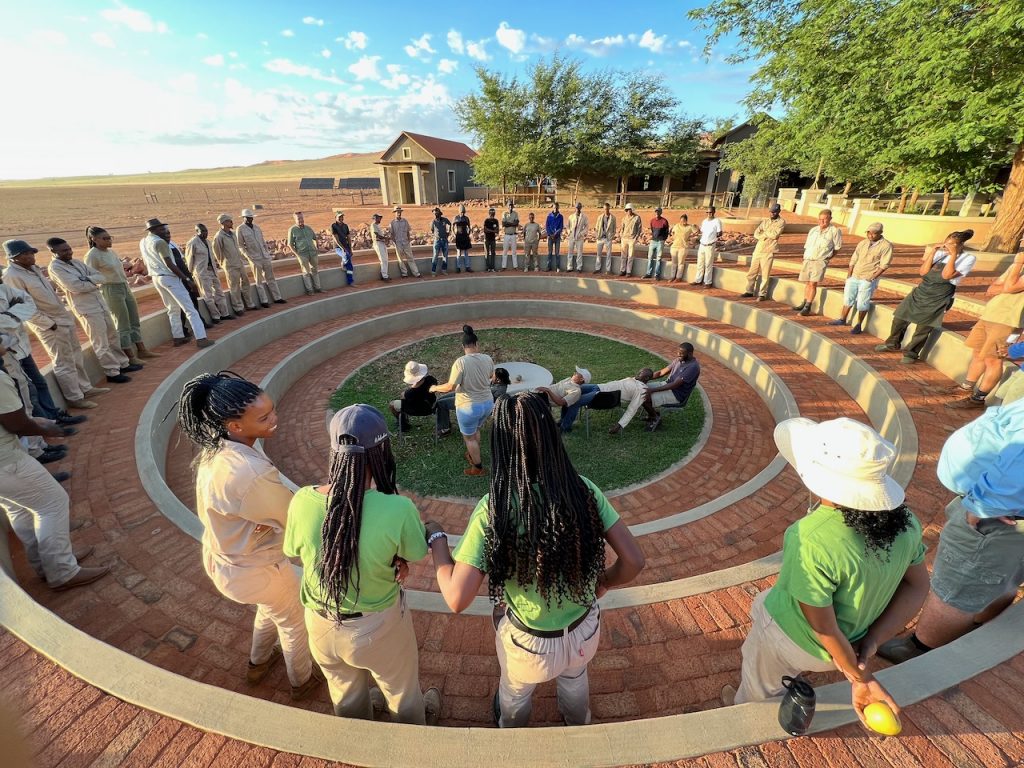
The morning circle time at Maltahöhe and at Wolwedans
The project has alreday created 20 new jobs in Maltahöhe. Finally, something positive is happening. Stephan and his team are fully committed to write a success story with Rural Revive – the foundation is laid out. The baby needs to learn how to walk.
In the long run Rural Revive is a frame where other players in the market can simply plug in and start realizing their own ideas; as long as it feeds the community of Maltahöhe and adds value to the tourism industry in the desert.